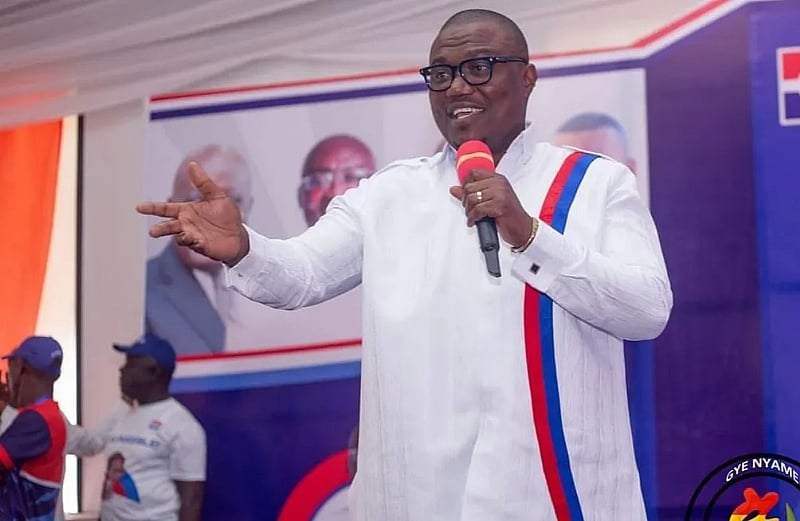The New Patriotic Party’s (NPP) defeat in the 2024 elections, according to Dr. Ayew Afriyie, Member of Parliament for Effiduase Asokore, can be attributed to the perceived arrogance exhibited by former President Nana Addo Dankwa Akufo-Addo. Dr. Afriyie contends that Akufo-Addo’s divisive rhetoric and apparent disrespect towards traditional authorities alienated crucial voter segments, contributing significantly to the party’s downfall. He cited specific instances where the former President’s actions and words seemed to disregard public sentiment and traditional hierarchies, ultimately eroding public trust and support. This perceived arrogance, coupled with the government’s handling of the unpopular E-levy, created a climate of discontent that ultimately led to the NPP’s electoral loss.
One of the key incidents highlighted by Dr. Afriyie was Akufo-Addo’s address in Kwabre East, where he seemingly dismissed the potential for voters to choose the opposition National Democratic Congress (NDC). The statement, interpreted as dismissive and condescending, likely offended residents and fueled a perception of detachment from the electorate. Such remarks, Dr. Afriyie argued, created a sense of resentment among voters, who felt their concerns were not being taken seriously. This dismissive attitude, according to the MP, contributed to a decline in support for the NPP, especially in regions where the party had traditionally enjoyed strong backing.
Furthermore, Dr. Afriyie criticized Akufo-Addo’s interaction with traditional chiefs, specifically citing an incident where the former President allegedly demanded that chiefs stand to greet him. This action, perceived as disrespectful towards traditional authority, likely angered not only the chiefs themselves but also their subjects who hold their leaders in high esteem. The disregard for traditional customs and protocols, Dr. Afriyie argues, further alienated a significant portion of the electorate who value and respect traditional leadership. This perceived disrespect for cultural norms further damaged the NPP’s image and contributed to the growing disillusionment among voters.
Adding to the growing discontent was the government’s handling of the controversial electronic levy (E-levy). Despite widespread public opposition and calls for a reduction or even scrapping of the tax, the Akufo-Addo administration pressed forward with its implementation. This disregard for public opinion, Dr. Afriyie contends, further fueled voter anger and frustration. The insistence on implementing the E-levy despite public outcry was seen as a sign of the government’s insensitivity to the economic hardships faced by ordinary Ghanaians. This perception of a disconnect between the government and the people solidified the narrative of an arrogant and out-of-touch administration.
The cumulative effect of these actions, according to Dr. Afriyie, manifested in the low voter turnout during the 2024 elections. This low turnout, he argues, reflected widespread apathy, disappointment, and a general dissatisfaction with the Akufo-Addo government. The perceived arrogance of the former president, coupled with the controversial E-levy and a perceived disconnect from the electorate, created a perfect storm that led to the NPP’s electoral defeat. The low voter turnout served as a clear indicator of the widespread disillusionment and lack of enthusiasm for the ruling party.
Despite the disappointing outcome of the elections, Dr. Afriyie expressed optimism about the NPP’s future. He believes the party has learned valuable lessons from its defeat and will emerge stronger and more attuned to the needs and concerns of the Ghanaian people. He emphasized the importance of acknowledging the mistakes made and taking corrective measures to regain public trust. This involves engaging in introspection, understanding the reasons behind the electoral loss, and adopting a more inclusive and responsive approach to governance. By learning from these “bitter lessons,” Dr. Afriyie believes the NPP can rebuild its image and reclaim its position as a leading political force in Ghana.














